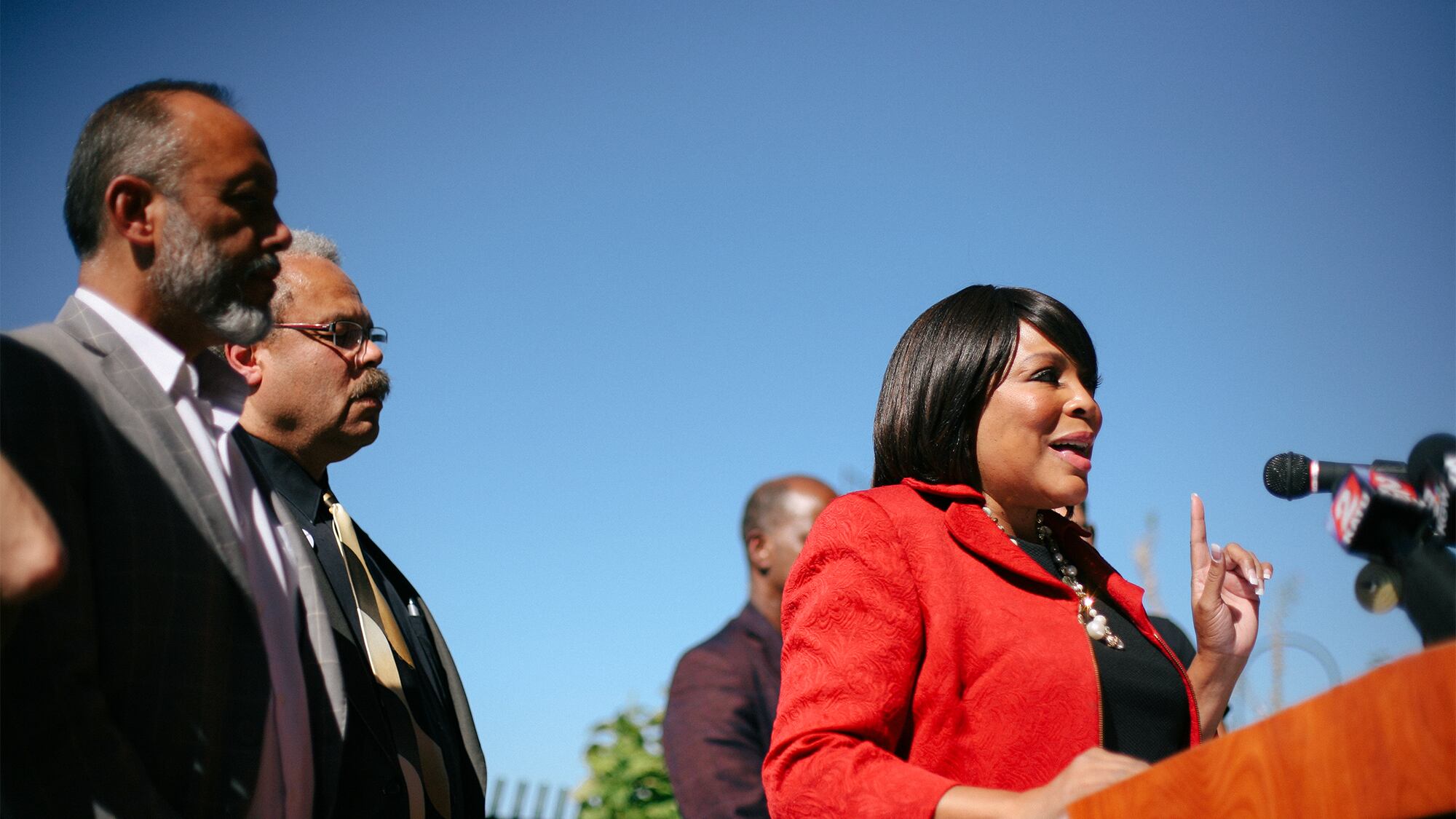When a young man with a slim résumé entered the race for the Portland City Council last month, he was met with outrage from social justice advocates and local officials.
His offense? Mostly his gender and his race: He's white.
Spencer Raymond, 30, a former Oregon Public Broadcasting newscaster who owns a West End taproom, entered a race in which three women of color were already vying for the seat held by retiring Commissioner Dan Saltzman.
The backlash against Raymond was so intense it drew pity from one of the women he's facing, NAACP of Portland president Jo Ann Hardesty.
"I felt sorry for the gentleman from OPB, because people were being unduly harsh on him," says Hardesty. "Anyone who wants to run should be able to run. I suspect there will be 10 to 12 people in the race by the filing deadline in March, and I suspect there will be white men and people of all colors, and I'm excited about it."
Not everybody is so welcoming. A range of left-wing Portlanders are pressuring straight white men to stay out of the campaign.

In its hundred-year history, Portland has never elected a woman of color to the City Council. The prospect of that happening next year has created an unexpected dynamic in the campaign.
It's an inversion of the typical racial politics in homogeneous Portland, which have tended to discourage candidates of color. (Portland remains one of America's least diverse major cities: 78 percent of residents are white, according to 2016 U.S. Census figures.)
Social justice activists and longtime political hacks are joining forces to argue the city would be better off if a white man isn't elected again.
"I really hope that we do elect one of the three very highly qualified women of color," says Rich Rodgers, a onetime City Hall staffer for then-Commissioner Erik Sten. "It's important to have a diversity of life experiences."
Related: Former OPB Newscaster Running for Office Faces Online Backlash
It doesn't seem to have discouraged Raymond, who is still in the race.
"Everyone running for City Council is doing so because they care about the future of Portland," says Raymond. "I have tremendous respect for the other candidates, and I hope Portlanders consider everyone's ideas before voting."
Yet at least three other white men have hesitated to enter the contest—two of them because they're reluctant to run against women of color.
Related: Metro Councilor Sam Chase Considering Entering Race to Succeed Dan Saltzman
Metro Councilor Sam Chase publicly weighed a bid, then last month rejected a run, citing the need for diversity. "It's been 25 years since there was a person of color on council," Chase said. Trial lawyer Thane Tienson is still mulling a run, but says promoting a diverse City Council is a priority for him. Stuart Emmons, an architect who ran for the council in 2016, has raised more than $60,000 but hasn't said if he'll seek Saltzman's seat and denied he's staying away because of racial politics.
Related: Sam Chase Will Not Run for City Council Seat After All
Hardesty was the first candidate to enter the race, challenging Saltzman before he decided not to seek a sixth term. She's been joined by Multnomah County Commissioner Loretta Smith, who is also black, and Andrea Valderrama, a Latina who is a senior policy adviser to Mayor Ted Wheeler. (A white woman, Felicia Williams, is also running, but has a lower profile.)
Related: County Commissioner Loretta Smith Will Run for Dan Saltzman's Portland City Council Seat
Like Hardesty, Smith and Valderrama say no one should feel discouraged from entering.
Related: Mayoral Staffer Andrea Valderrama Officially Announces Run for City Council
"Part of why I am running is that I believe a woman of color would bring a needed perspective and insight to the council," says Smith. "At the same time, I believe no one should be discouraged from running."
But that's not how it worked out for Raymond when he launched his candidacy Oct. 23. A bevy of progressives—from social justice activists who police Twitter to elected officials—jeered him on his own Facebook page.
"You're clearly going to need to answer the question of why you've decided—as a straight, able-bodied, middle-class white man—to run against three qualified women of color," racial-justice activist Cameron Whitten wrote.
"Spencer, do yourself a huge political favor and don't run," added Oregon state Rep. Diego Hernandez (D-Portland).
Hernandez, who has endorsed Valderrama, tells WW white men have the right to run against women. "'Is it politically strategic for you to run?' is a different question," Hernandez says.
Raymond's online shaming has gained him new fans. The right-wing extremist website Infowars ran a story that included screen shots of the abuse Raymond was taking on Facebook. Alt-right readers flooded Raymond's Facebook page to support his candidacy. "It's OK to be white," multiple users wrote.
Hardesty says she fears that white supremacists are now more vocal and will play a role in the primary.
"[Raymond] was getting it from all sides—from the left and the right. That was unfortunate," she says. "I almost sent him an email saying, 'It's OK. If you want to run, run.'"
